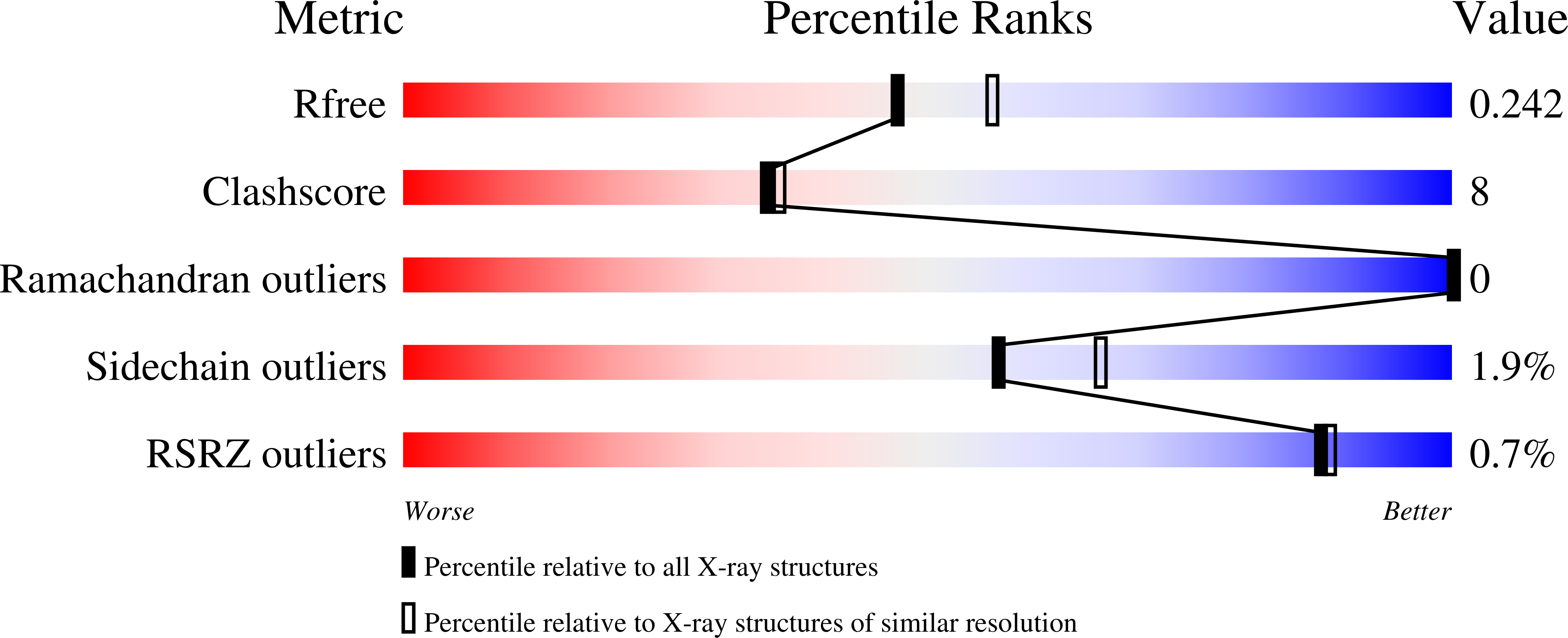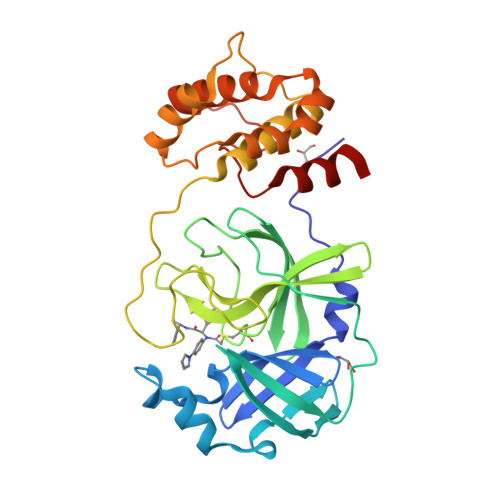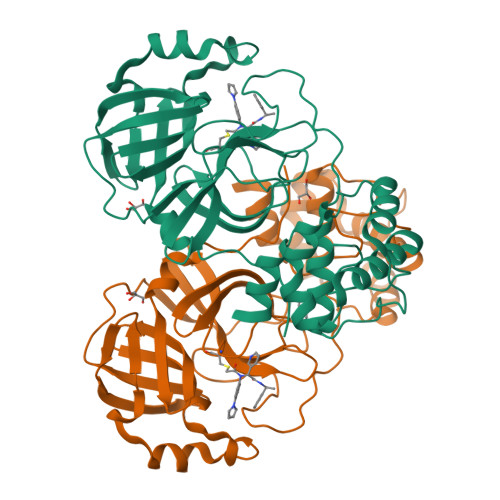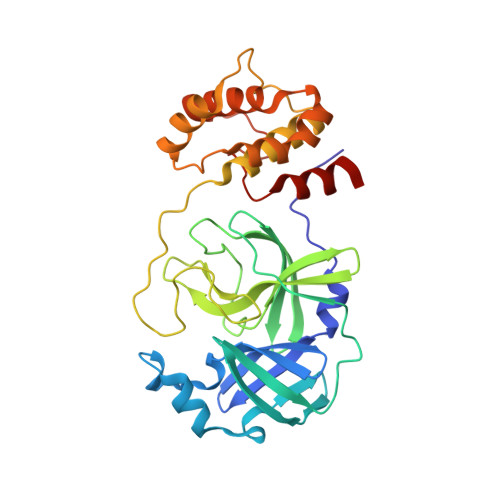Discovery of Di- and Trihaloacetamides as Covalent SARS-CoV-2 Main Protease Inhibitors with High Target Specificity.
Ma, C., Xia, Z., Sacco, M.D., Hu, Y., Townsend, J.A., Meng, X., Choza, J., Tan, H., Jang, J., Gongora, M.V., Zhang, X., Zhang, F., Xiang, Y., Marty, M.T., Chen, Y., Wang, J.(2021) J Am Chem Soc 143: 20697-20709
- PubMed: 34860011
- DOI: https://doi.org/10.1021/jacs.1c08060
- Primary Citation of Related Structures:
7KX5, 7RN0, 7RN1 - PubMed Abstract:
The main protease (M pro ) is a validated antiviral drug target of SARS-CoV-2. A number of M pro inhibitors have now advanced to animal model study and human clinical trials. However, one issue yet to be addressed is the target selectivity over host proteases such as cathepsin L. In this study we describe the rational design of covalent SARS-CoV-2 M pro inhibitors with novel cysteine reactive warheads including dichloroacetamide, dibromoacetamide, tribromoacetamide, 2-bromo-2,2-dichloroacetamide, and 2-chloro-2,2-dibromoacetamide. The promising lead candidates Jun9-62-2R (dichloroacetamide) and Jun9-88-6R (tribromoacetamide) had not only potent enzymatic inhibition and antiviral activity but also significantly improved target specificity over caplain and cathepsins. Compared to GC-376 , these new compounds did not inhibit the host cysteine proteases including calpain I, cathepsin B, cathepsin K, cathepsin L, and caspase-3. To the best of our knowledge, they are among the most selective covalent M pro inhibitors reported thus far. The cocrystal structures of SARS-CoV-2 M pro with Jun9-62-2R and Jun9-57-3R reaffirmed our design hypothesis, showing that both compounds form a covalent adduct with the catalytic C145. Overall, these novel compounds represent valuable chemical probes for target validation and drug candidates for further development as SARS-CoV-2 antivirals.
Organizational Affiliation:
Department of Pharmacology and Toxicology, College of Pharmacy, The University of Arizona, Tucson, Arizona 85721, United States.


















